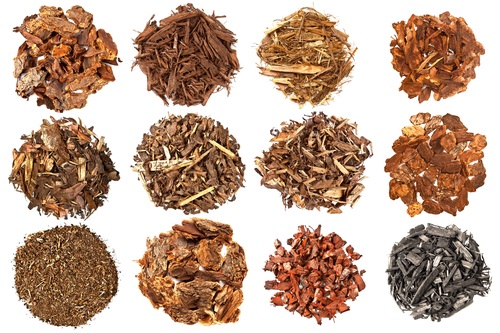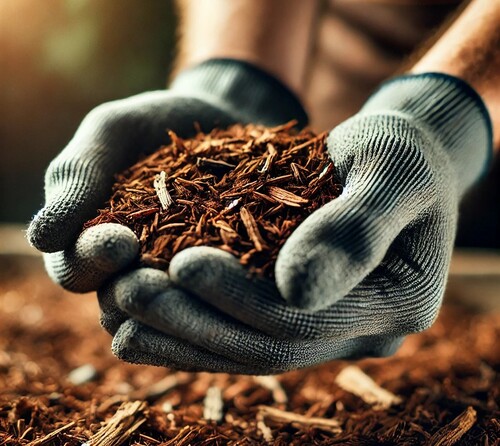The Ultimate Guide to Choosing the Best Mulch for Your Trees
Introduction: Navigating the World of Mulch
Mulching is a crucial aspect of tree care that often leaves many homeowners puzzled. With countless options available, selecting the right mulch for your trees can seem daunting. This comprehensive guide will help you make an informed decision, ensuring that your trees receive the best care possible while enhancing your landscape’s aesthetic appeal.
Organic vs. Inorganic Mulch: Making the Right Choice
One of the first decisions you’ll face is whether to use organic or inorganic mulch. Both types have their merits, and understanding their characteristics is key to making the right choice for your trees.

Diverse Types of Mulch for Effective Landscaping
The Benefits of Organic Mulch
Organic mulch is derived from natural materials and offers numerous advantages:
1. Soil Health Enhancement:
- Improves soil structure as it decomposes
- Adds essential nutrients to the soil
- Promotes beneficial microbial activity
2. Moisture Conservation:
- Reduces water evaporation from soil
- Maintains consistent soil moisture levels
3. Temperature Regulation:
- Insulates soil against extreme temperature fluctuations
- Keeps roots cooler in summer and warmer in winter
4. Weed Suppression:
- Creates a barrier that inhibits weed growth
- Reduces competition for nutrients and water
5. Biodegradability:
- Naturally breaks down over time
- Requires annual replenishment, ensuring fresh nutrients
Popular organic mulch options include:
- Wood chips
- Bark mulch
- Straw or hay
- Compost
- Leaf mold
The Advantages of Choosing Inorganic Mulch
Inorganic mulch is made from nonliving materials and offers its own set of benefits:
1. Longevity:
- Doesn’t decompose, lasting for years
- Requires less frequent replacement
2. Low Maintenance:
- Doesn’t attract pests
- Doesn’t need to be replenished annually
3. Aesthetic Appeal
- Available in various colors and textures
- Maintains its appearance over time
4. Effective Weed Control:
- Creates a formidable barrier against weeds
- Often more effective than organic mulches
5. Fire Resistance:
- Some types, like gravel, can act as a firebreak
Common inorganic mulch materials include:
- Gravel or pebbles
- Crushed stone
- Rubber mulch
- Landscape fabric
Our Verdict: Organic vs. Inorganic
While both types have their place, organic mulch is generally recommended for trees due to its soil-enhancing properties. However, the best choice depends on your specific needs, tree types, and local climate. Consider consulting with a certified arborist for personalized advice.
The Color Conundrum: Choosing the Right Mulch Hue
Mulch color isn’t just about aesthetics; it can affect your trees and garden in various ways:

A Vibrant Garden Bed with Red Mulch and Lush Foliage
Popular Mulch Colors and Their Impacts:
1. Black Mulch:
- Absorbs heat, warming soil faster in spring
- Creates a striking contrast with plants
- May increase soil temperature excessively in hot climates
2. Brown Mulch
- Natural look that blends well with most landscapes
- Mimics the color of natural forest floor
- Doesn’t compete visually with plants
3. Red Mulch
- Adds a vibrant pop of color to landscapes
- Can compliment certain architectural styles
- May fade faster than other colors
Considerations When Choosing Colored Mulch
- Dye Safety: Ensure that colored mulch is certified by the Mulch & Soil Council for safety
- Fading: Colored mulches may require more frequent replacement to maintain appearance
- Staining: Use caution during application to prevent staining of hardscapes or clothing
- Plant Compatibility: Some studies suggest certain colors may benefit specific plants
Best Practices for Mulching Trees
To maximize the benefits of mulching for your trees:
- Proper Depth: Apply a 2-to-4-inch layer of mulch
- Mulch Ring: Create a mulch ring extending 3-6 feet from the trunk
- Avoid Volcano Mulching: Keep mulch away from the tree trunk to prevent moisture-related issues
- Regular Maintenance: Refresh organic mulch annually or as needed
- Soil Testing: Conduct soil tests to ensure that mulch isn’t affecting soil pH adversely
Conclusion: Tailoring Your Mulch Choice to Your Trees’ Needs
Selecting the best mulch for your trees involves balancing various factors including tree species, local climate, soil conditions, and personal preferences. While organic mulches generally offer more benefits for tree health, the right choice depends on your specific situation.

A Close-Up of a Gardener Holding Mulch for Landscaping
For residents in the San Francisco Bay Area seeking personalized mulching advice, Arborist Now offers expert tree care services . Our certified arborists can assess your trees and provide tailored recommendations to ensure optimal health and beauty for your landscape. Contact Arborist Now for all your tree care and mulching needs. Remember, proper mulching is an investment in the long-term health and beauty of your trees. By choosing the right mulch and applying it correctly, you’re not just enhancing your landscape—you’re nurturing a living legacy for years to come.
Originally posted on July 12, 2019


